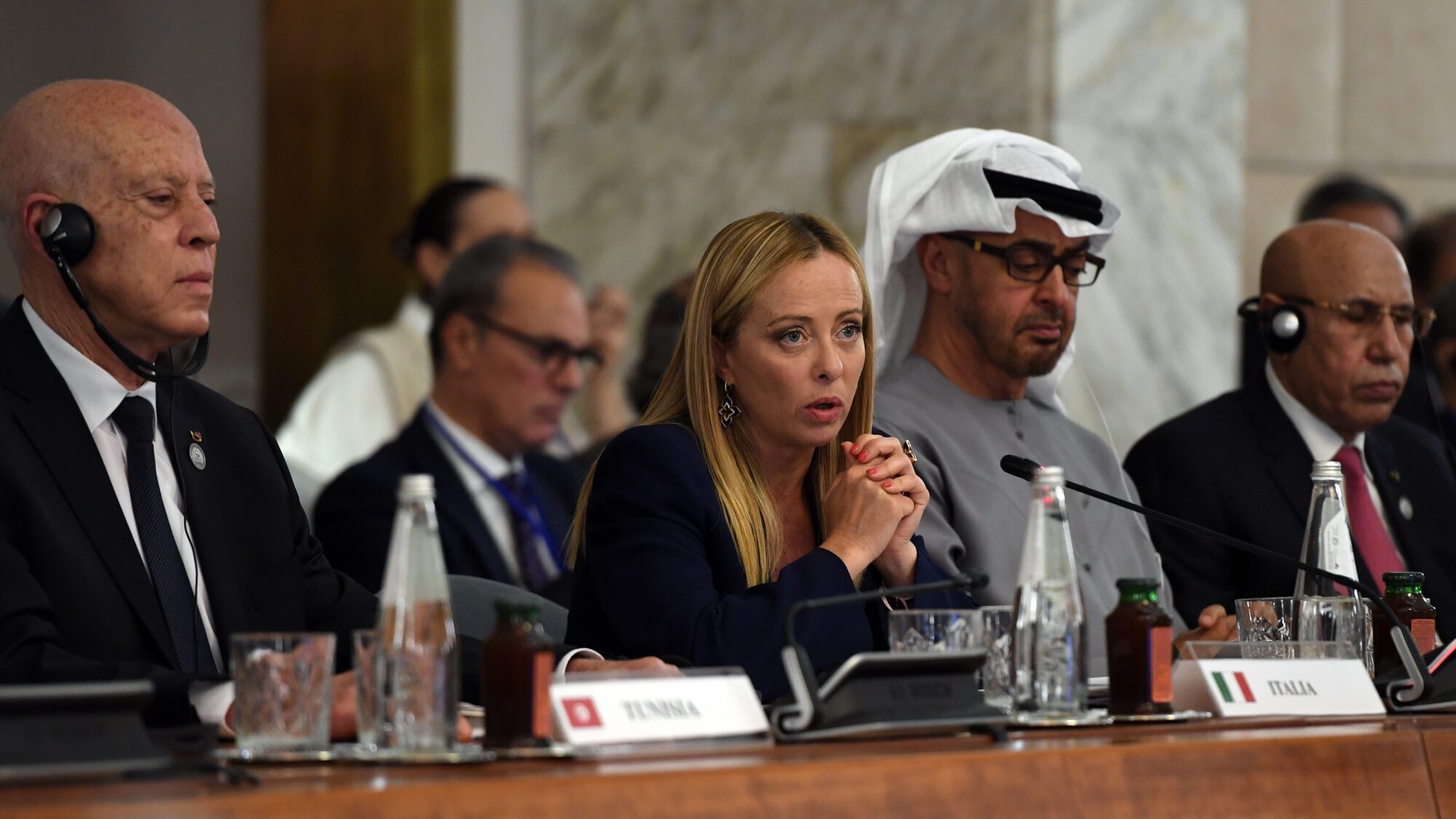
Tunisian President Kais Saied, Italian Premier Giorgia Meloni, President of the United Arab Emirates Mohamed bin Zayed al-Nahyan, and Mauritania’s President Mohamed Ould Ghazouani during the International Conference on Migration, in Rome.
Photo: Photo by STRINGER / ANSA / AFP
A major conference on migration was held in Rome on Sunday, July 23rd at the initiative of Italian Prime Minister Giorgia Meloni who, inspired by the recent agreement signed between Tunisia and the European Union, wants to extend the model to other countries around the Mediterranean.
Around twenty leaders from Mediterranean and African countries attended the conference in Italy. They were joined by Ursula von der Leyen, President of the European Commission, and Charles Michel, President of the European Council.
Discussions focused on ways of limiting illegal immigration into Europe and better managing legal immigration based on cooperation between states. The conference was also an opportunity for Meloni to reaffirm Italy’s international stature: “We are a bridge between EU, Africa, and the Middle East”, she explained during the conference.
At mid-day, Giorgia Meloni announced the creation of a fund to finance investment projects and improve border controls, with the aim of regulating flows more effectively. The United Arab Emirates has already announced its intention to contribute €100 million to the fund. An initial donors’ conference is due to take place at a date as yet unknown.
The launch of the fund is the only concrete initiative to emerge from the conference, but this does not worry the Italian Prime Minister too much. She believes that this is just the start of a “long process” to which she has given the name “the Rome process.” In her view, the fund’s priority should be to finance infrastructure and strategic investment, particularly in areas deemed crucial such as renewable energies. Before being a tool for reducing migratory flows, it is above all a renewed form of cooperation or development aid with Africa.
The issue of reducing illegal immigration is a sensitive one for Giorgia Meloni, who made it one of her hobby horses during the electoral battle that led to her election almost a year ago. The Italian prime minister has softened her anti-immigration rhetoric considerably in recent months, even stating that “both Europe and Italy need immigration.” She said she was prepared to welcome more immigrants to Italy, but through “legal routes.” According to Euractiv, Italy recently announced that it would issue 452,000 work visas to non-EU citizens between 2023 and 2025, with a peak of 165,000 in 2025. Just before the pandemic, in 2019, only 30,850 visas had been issued by the Italian government.
As far as illegal immigration is concerned, more than 80,000 people are thought to have crossed the Mediterranean and arrived on the peninsula’s shores since the start of the year, compared with around 33,000 during the same period last year. Most of the migrants leave from the Tunisian coast, which explains why Giorgia Meloni and the European Commission have been working specifically with Tunisia to try to stem emigration from North Africa. To this end, an agreement has just been signed between the European Union and Tunisia, providing for €105 million of European aid to prevent the departure of migrant boats and to combat smugglers, with Italy playing a special role in the negotiations. The agreement also provides for stepping up the return of Tunisians illegally present in the EU. Similar agreements with Morocco and Egypt are said to be under consideration.
